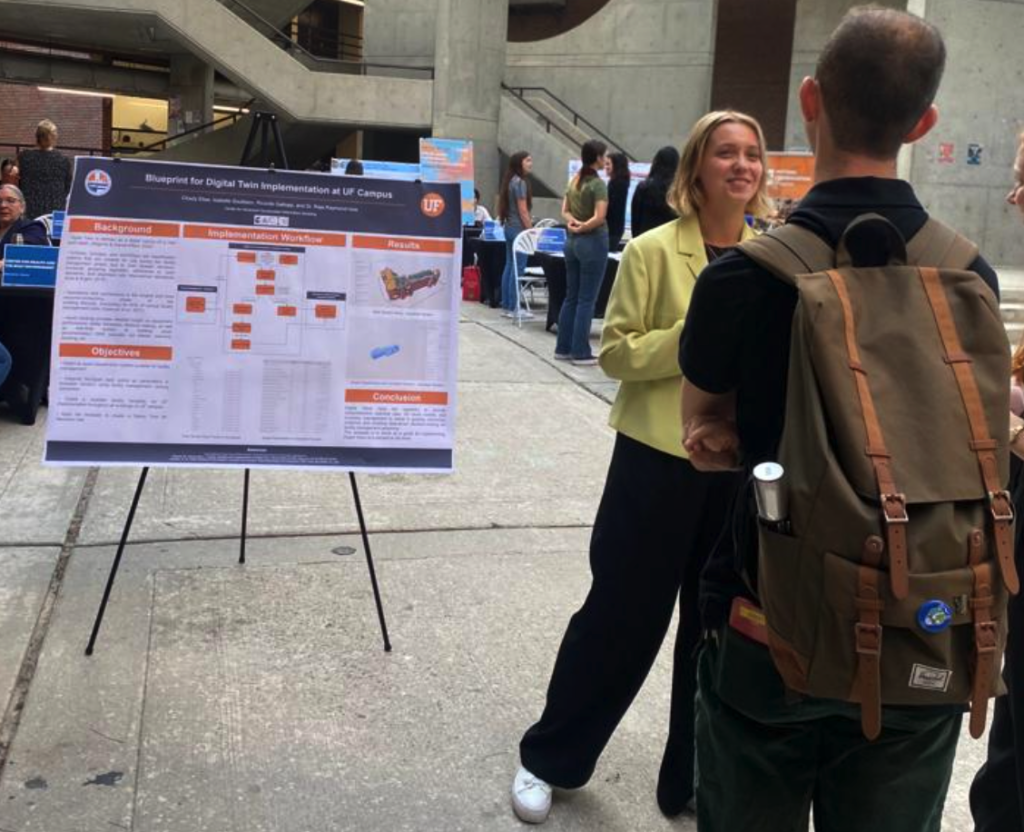
The University of Florida’s Center for Advanced Construction Information Modeling (CACIM) recently presented its research on implementing Digital Twins across the University of Florida campus at the 2023 DCP Research Symposium. The event was held on Wednesday, November 8th in the John and Anne Sofarelli Family Gallery from 4-5 pm promoted by the Design, Construction, and Planning College.
As digital twins become more prevalent in smart city and campus initiatives, CACIM is developing a standardized framework for effectively scaling digital twin adoption.
CACIM Outlined Digital Twin Implementation Research
The CACIM team explained their core objectives:
- Selecting an asset classification system optimized for facility management
- Integrating real-time data from systems like SkySpark into digital twin models
- Creating a template for implementing digital twins that can be applied across all UF buildings
- Demonstrating the template via a digital twin of Heavener Hall
They emphasized that standardized digital twin implementation enables comprehensive real-time data visualization, analytics, and informed decision-making for facility managers.
Framework Aims to Guide Digital Twin Adoption at Scale
Developing a blueprint for digital twin implementation is key to widespread adoption. By outlining data integration, modeling, and asset classification procedures, CACIM’s framework enables a scalable approach to digital transformation.
Their research presents a guide for campuses and cities to successfully leverage digital twins across entire building portfolios. With a standardized implementation template, facility managers can tap into the power of virtual modeling and IoT integration to optimize data-driven operations.